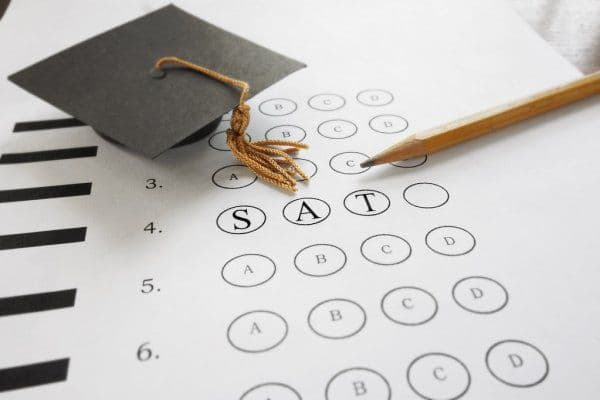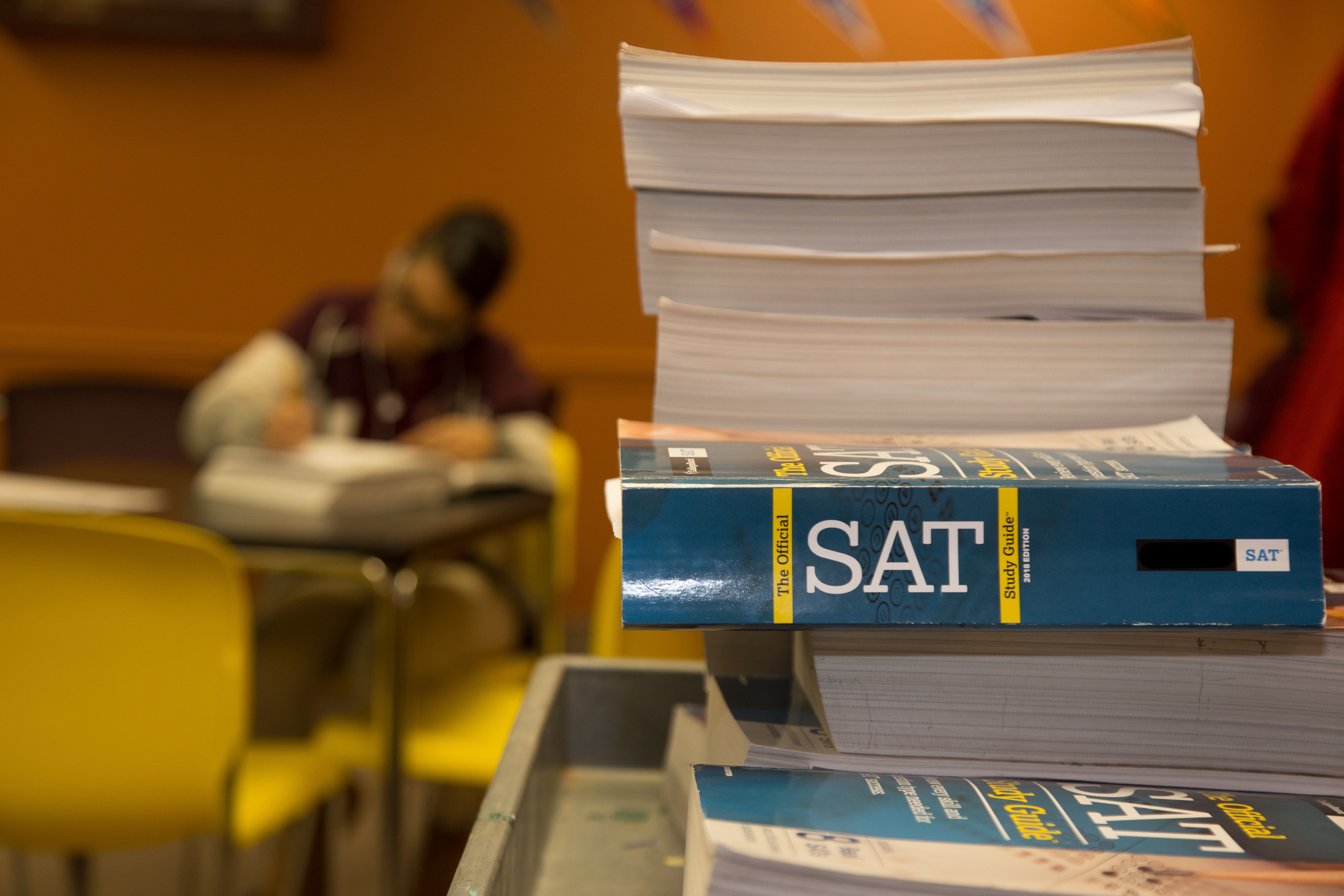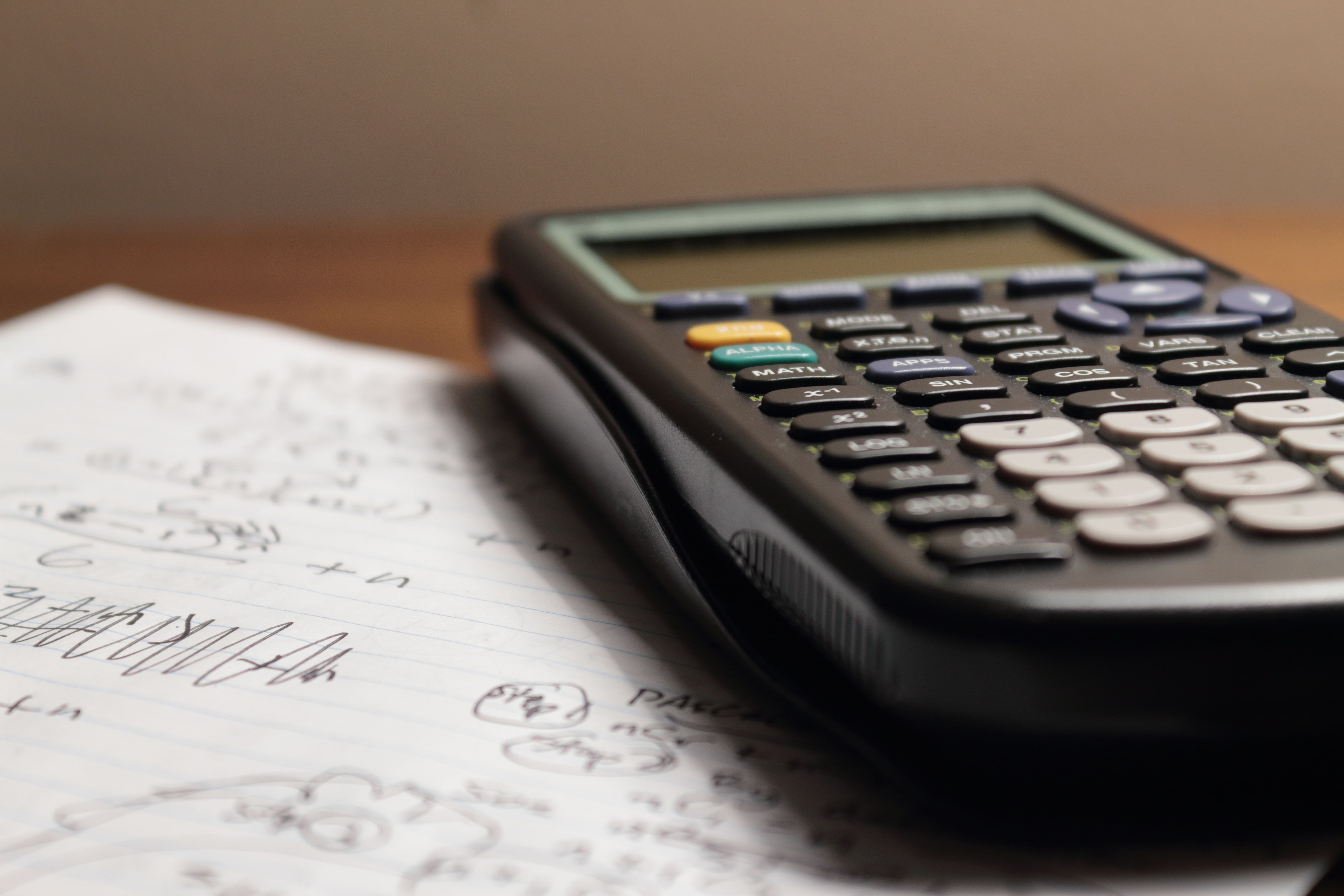
SAT: Everything You Need to Know
The SAT is an entrance exam issued by the College Board, and is the test used by most colleges and universities to make admissions decisions. The purpose of the SAT is to measure a student's readiness for college, and provide colleges with a shared data point to compare applicants. In this article, we'll tell you everything you need to know about the SAT, including how best to prepare for it!

This blog was initially published on December 8, 2022 and has been republished with updated information.
What is The SAT?
The SAT is an entrance exam issued by the College Board. The test is used by most colleges and universities to make admissions decisions.
The purpose of the SAT is to measure a student's readiness for college, and provide colleges with a shared data point that can be used to compare applicants. Admissions officers will review test scores alongside GPA, classes taken in high school, letters of recommendation written by teachers or mentors, extracurricular activities, admissions interviews, and personal essays.
When is The SAT?
The test is offered annually in August, October, November, December, March, May, and June. We recommend students take the SAT at least three times, preferably the August - December administrations of their Junior year. This varies by student need and preparedness; we go through several prospective timelines here.
The remaining SAT test dates for the 2025-2026 school year are:
- December 6, 2025
- March 14, 2026
- May 2, 2026
- June 6, 2026
Anticipated test dates for Fall 2026 are:
- August 15, 2026
- September 12, 2026
- October 3, 2026
- November 7, 2026
- December 5, 2026
Please note that the anticipated August SAT date shifted from the typical third week of August to the second week of August.
How Long is The SAT?
The SAT is 2 hours and 14 minutes long.

SAT Sections and Structure
How many sections are on the SAT?
There are two SAT test sections, divided into two modules each. A Reading and Writing section, taken in two parts, and a Math section, also taken in two parts.
The SAT - now only available as a digital exam - is an adaptive exam. This means that how well you do on the first module predicts the difficulty of the second module you receive, and thus how high you can ultimately score. A student who receives the “easier” second module - even if they answer every question correctly - is unable to earn a perfect score. Students do not know if they are receiving the easier or harder second module, and are not told even when scores are released. We can make an educated guess based on your score and the number of errors made in the first section, however.
Reading
The SAT Reading and Writing section tests four key areas using short passages of text followed by a multiple choice question. The four key areas test a student’s reading comprehension; vocabulary knowledge, specifically in the context of the passage; the ability to revise texts for clarity, conciseness, or other rhetorical goal; and knowledge of standard English language writing conventions (aka grammar).
This section has:
- 54 multiple choice questions
- 64 total minutes
- Questions are divided into two 32-minute modules (27 question each)
Math
The SAT math sections test a student's knowledge of algebra, advanced math concepts, problem solving and data analysis, and geometry and trigonometry. We find the content covered in Algebra II to be the most relevant to the SAT.
The section has:
- 44 questions
- 70 total minutes
- Questions are divided into two 35-minute modules (22 questions each)
Questions in the math section are a mix of multiple choice and short answer. Most are multiple choice, but some questions will require you to input the answer manually (without choices). Those questions are also called grid-ins, and they are designed to check students’ mathematical dexterity since they are unable to plug in available options and back-solve.
SAT Registration
When does SAT registration open?
SAT dates are released once or twice a school year and all registration opens at the same time. This means new dates might be released in January, but you can already enroll for May and June as well as March. The College Board does not make a big announcement about dates, they just quietly appear. At Ivy Tutors Network, we alert families as soon as we know about new open dates so they can quickly enroll at a convenient testing center. In many large cities, the easiest to access testing centers fill up quickly - and no one wants to start their SAT by a long commute!
How to register for the SAT?
You can register for the SAT online at the College Board website. There are a limited number of SAT test dates per year, so you want to make sure to register early enough to ensure there is space for you at a convenient test location.
How much does the SAT cost?
The SAT costs $68 per test.
Some students may be eligible for fee waivers if they meet certain requirements.
How can you cancel SAT registration?
You can cancel your registration here by logging into your SAT account. While you will be refunded for your registration fee, you will still be charged a cancellation fee of $34 if you cancel before the cancellation deadline, and a fee of $44 dollars if you cancel after the deadline and up until test day.
SAT Scoring System
How hard is the SAT?
The SAT can be difficult for many students. Challenges include time pressure, advanced mathematical concepts, difficult reading passages, and general stress. However, all of these challenges are surmountable with preparation.
What is a good SAT score?
The average SAT score is 1060 and the highest possible SAT score is 1600. A "good" SAT score will be relative to the schools you are applying to. Colleges usually share the average SAT scores of the students they accept. For any school you are applying to, you want to make sure you are at or above this average.
When do SAT scores come out?
Typically, a student will be able to check their scores 10 business days after taking the test. In our membership, we call it the “Score Drop Friday.” You can see the SAT score release dates here. Sometimes, your score may take longer to show up - it’s usually not a big deal. Simply wait until Monday morning. If you still don’t see your scores, call the College Board.
Domestic: 866-630-9305
International: +1-212-713-8000
How can you check SAT scores?
To check your SAT scores, you will need to sign in to your College Board account. Once logged in students can see their scores and look through all of the problems they answered incorrectly in order to learn from their mistakes.
When do you send SAT scores to colleges?
You can send your scores to colleges as soon as they are available on the College Board website. In your account, you are given the option to select all of the schools you would like to send your score to. You can do this as soon as you have earned a score you feel good about sharing. However, you must do so before the rest of your application is due.
When are SAT scores due for colleges?
Make sure to send your SAT scores at least two weeks before each application deadline.
How many times can you take the SAT?
You can take the test as many times as you want! However, keep in mind that there are only seven test dates in a given academic year. Generally speaking, it is not encouraged to take the SAT more than four times, as this tends to yield diminishing returns.
Can colleges see how many times you take the SAT?
Almost all colleges allow students to send only the scores they wish to share. However, on rare occasions a college will have a different policy, so make sure to check the college’s website or contact the admissions office in order to confirm.
What happens if you fail the SAT?
The SAT is not a pass/fail exam, so students cannot fail the SAT. However, you may receive a very low score that you do not want to report to colleges. Most schools do not require you to send all scores, so if you receive a very low score, simply study more and try to improve on your next test.
SAT Test Day Rules
What to bring to the SAT?
You should bring the following items to the SAT on test day:
- A fully charged testing device with the Bluebook App already installed.
- Make sure you prep your personal device the night before. Log in to the Bluebook app and follow the on-screen instructions. If you’re registered to take the test the next day, those instructions will appear automatically.
- Your up-to-date admissions ticket. (Printed out or as a screenshot on your phone)
- An official photo ID.
- College Board user id and password to login to BlueBook.
- Pens or pencils to use with scratch paper.
- An approved calculator (optional). The Bluebook app also has a built in calculator called Desmos. We recommend bringing a calculator as some questions are faster to answer on a TI-84 than on Desmos.
You might also want to bring a watch (cannot be a smart watch), a water bottle, and some snacks (for the break).
SAT Test Day Checklist
- DO wear comfortable clothes and shoes. Dress in layers so you can adjust to the room’s temperature.
- DO plan to arrive 10 mins early. There is no need to arrive at the crack of dawn; as long as you’re on time, you’re fine. Usually, there will be a line of students waiting outside. Security will check your ID, your ticket, and collect your phone. Be ready—but not too early—because you don’t want to get tired, arrive under-rested, or be anxious. Don’t talk to anyone while you’re in line. Listen to your favorite study music and flip through your flashcards.
- DO take deep, slow breaths to keep yourself from getting anxious, especially right before the test begins.Take belly breaths.
- DO plan your time. Remember: you can skip questions and then return to them.
- DO use scrap paper to work through each question as much as you like. We recommend that students use scrap paper even on Verbal. You can always ask for extra paper. We usually recommend that students request it as soon as they walk in, though not all proctors will say yes. If you run out during the test, you can absolutely ask for more between sections.
- DO guess. There is no penalty for wrong answers, so make sure you eliminate any obvious wrong answers and then choose an answer for any you skipped 5–10 minutes before time’s up in each section. However, please note that the DSAT also tracks your timing per question—so if their system CAN tell that you guessed because you only spent 10 seconds on a long reading question that should at least take 80 seconds, they will not give you points even if you guessed right.
- DO check your work, if there is time. You can’t leave before the allotted time is up anyway!
- DO NOT bring any additional electronic devices (even phones) into the classroom. Phones will be held by staff until after the test.
Are calculators allowed on the SAT?
Calculator use is only allowed on both modules of Math. Check out a list of officially SAT allowed calculators and the College Board’s calculator policy.

5 Recommendations for How to Study for the SAT
- Start studying early! We recommend beginning with a diagnostic test. Ivy offers diagnostic testing that provides students with comprehensive score reports that identify and assess particular strengths and weaknesses. We advise students to take a diagnostic test no later than the fall of their junior year—with test preparation out of the way, you will have time later on for the other parts of your college applications.
- Create a study program. We recommend studying 2-3 hours per week in the three months before taking the test. And remember: Stick to your schedule! If you’d rather work through a more structured program, consider SAT Boost.
- Always be working on your vocabulary. We recommend students read no fewer than 25 pages a day. Underline words you encounter in your regular readings at school and come back to them later.
- Take multiple full-length practice tests. These tests should be timed, and will ideally be taken in a test center so that the conditions closely replicate the actual test-day conditions.
- Develop useful skills. Make sure not only to create a study program, but to develop skills for managing your stress and keeping yourself healthy and happy. Studying with experts in the SAT is an ideal way to go about preparing yourself for the test. At IVY, our team of brilliant SAT tutors will work closely with you every step of the way to make sure that you reach your maximum potential and show up on test day entirely at ease.




